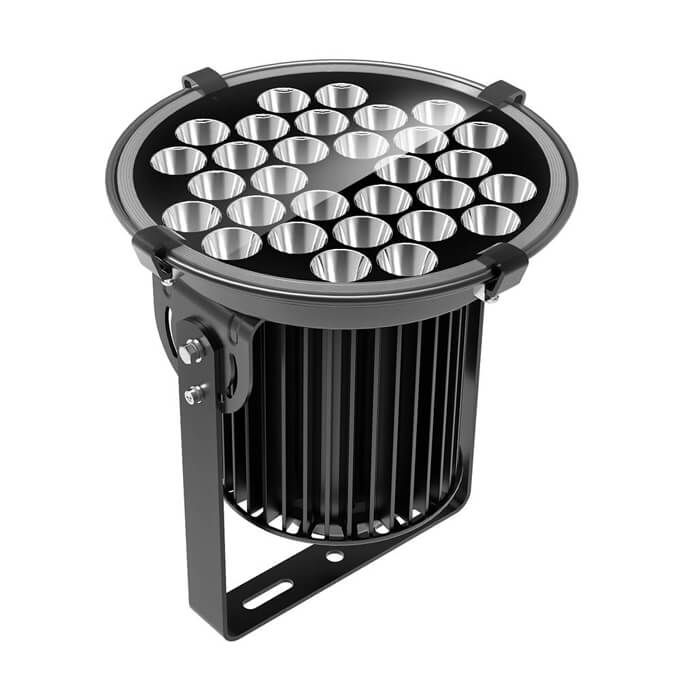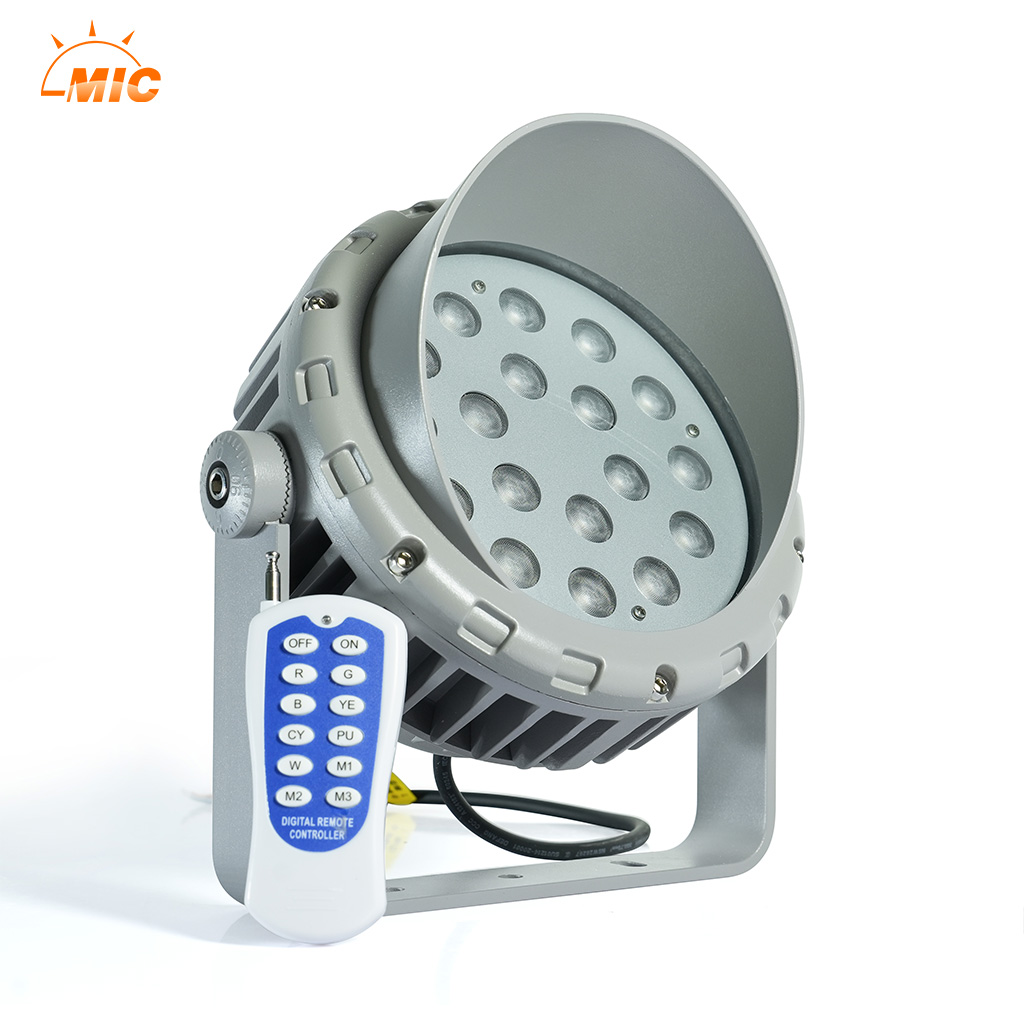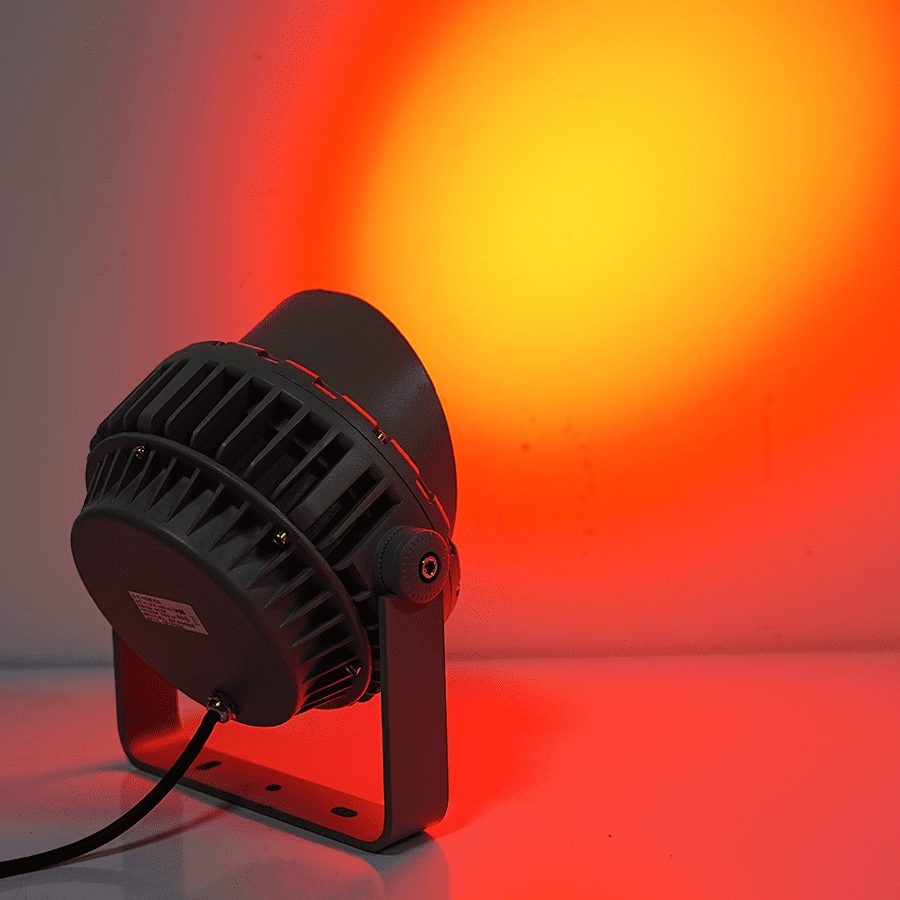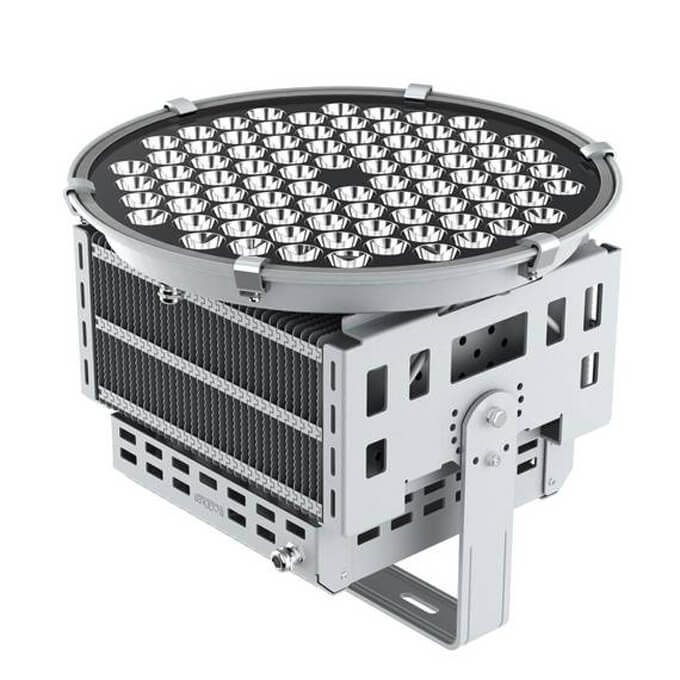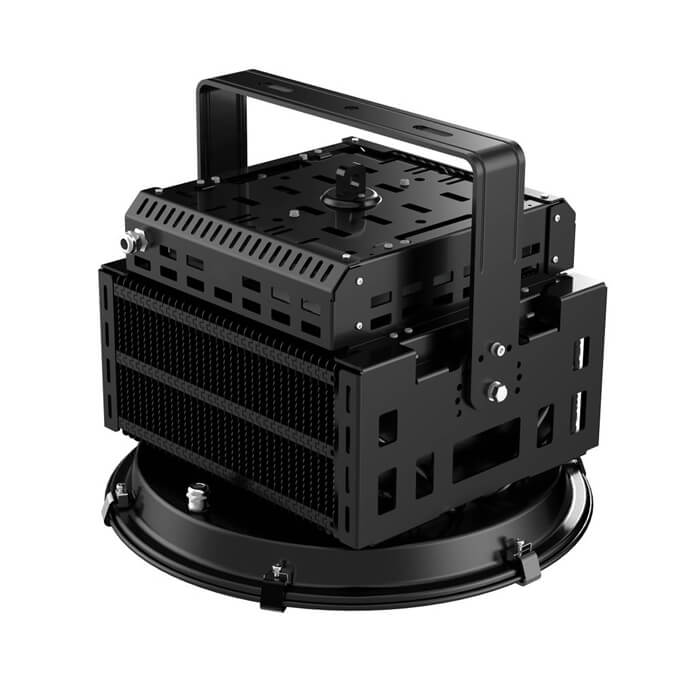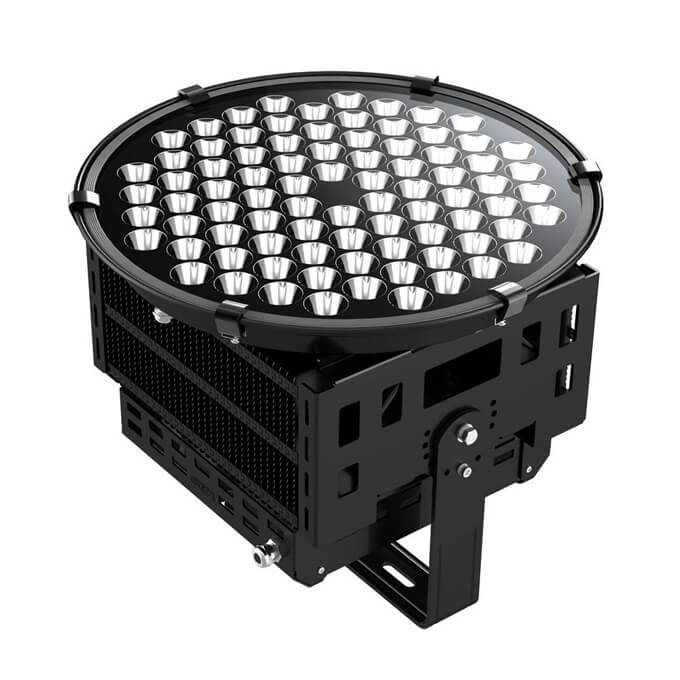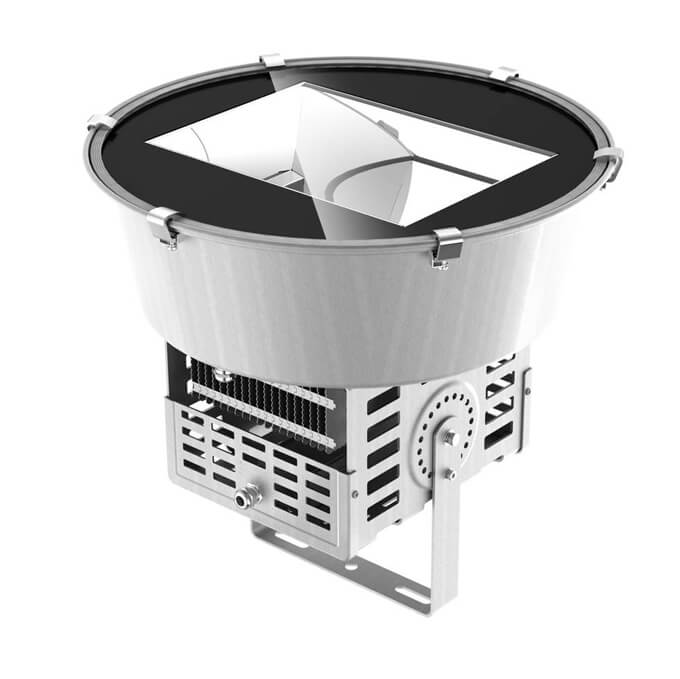T LED flood light Introduction
Shenzhen MIC Optoelectronics Co., Ltd. was founded in 2005 and is located in Longgang District, Shenzhen, Guangdong. Since the LED company is among the leader in the industry, thus it specializes in high-power LED indoor and outdoor lighting including the T Series Flood Light. It is a leading integrated operation service company in the field of LED optoelectronics, focusing on the research and development of LED lighting products, Production, and sales. The company also has standard product production lines, self-support import and export rights, and professional management.
Also, they have research and development, manufacturing, and marketing teams, with more than hundreds of employees. They manufacturer different Products such as high-power LED street lights, LED solar street lights, LED high bay lights, LED tunnel lights, LED tubes, LED bulbs, LED spotlights, LED track lights, LED engineering lights LED ceiling lights and other high-power LED indoor and outdoor lighting fixtures and LED solar products, which have the advantages of energy-saving, environmental protection, and long service life, are widely used in lighting, traffic indication and urban lighting and other fields.
The company has also passed ISO9001 international quality system certification and ISO14001 international environmental management system certification. It has UL, TUV, CE, ROHS, FCC, and other international testing and certification reports for various products.
Survive by quality, and develop by innovation. Shenzhen Chuangqi Optoelectronics insists on technological innovation for development, adhering to the tenet of "Serving customers wholeheartedly", providing customers with high-quality products and perfect after-sales service. Therefore, the company is willing to cooperate with new and old customers and develop together sincerely.
Applicable Places
T series LED floodlights are mainly used in single buildings, exterior wall lighting of historical buildings, building interior and exterior lighting, green landscape lighting, billboard lighting, and other special facilities lighting, bars, stadiums, stadiums, squares , Railway stations, ships, construction sites, tower cranes, and other lighting.
| Model NO. |
MFL-T150 |
MFL-T200 |
| Power Consumption |
150W Flood light |
200W Flood light |
| NW/Size |
7.5kg/Dia370*347mm |
7.5kg/Dia370*347mm |
| Luminous Flux |
XTE / >15000lm |
XTE / >20000lm |
| Packing |
440*440*330 |
440*440*330 |
| Model NO. |
MFL-T300 |
MFL-T400 |
MFL-T500 |
| Power Consumption |
300W Flood light |
400W Flood light |
500W Flood light |
| NW/Size |
10kg/Dia369*356mm |
10kg/Dia369*356mm |
16.5kg/Dia471*407mm |
| Luminous Flux |
XML2/>30000lm |
XML2 / >40000lm |
XML2/>50000lm |
| Packing |
440*440*330mm |
440*440*330mm |
550*550*360mm |
| Model NO. |
MFL-T600 |
MFL-T800 |
MFL-T1000 |
| Power Consumption |
600w flood Light |
800W flood Light |
1000W flood light |
| NW/Size |
16.5kg/Dia471*407mm |
23kg/Dia472*496mm |
26kg/Dia472*496mm |
| Luminous Flux |
XML2 / >60000lm |
XHP50 / >80000lm |
XHP50 / >100000lm |
| Packing |
550*550*360mm |
630*530*450mm |
630*530*450mm |
| Beam Angle |
5/10/20/30/60° |
IP Grade |
IP66 |
| CCT |
2700-6500K |
PF Rate |
>0.95 |
| luminous efficiency |
>100lm/W |
CRI |
>80 |
| Life span |
50000h |
Guarantee |
5 years |
Product Features:
1: The T series floodlight housing is composed of large and large area fin heat sink, reflector and main body bracket.
2: Shell structure: Our flood light has a relatively large lampshade, mainly for light gathering and reflection, as well as a large heat sink, and 6 heat dissipation copper pipes to guide the heat velocity of the lamp beads to the heat sink. The lamp body bracket can be adjusted by 270 degrees.
3: Structural waterproof function: All of our cable interfaces are waterproof interfaces, and there is also a waterproof rubber ring at the reflector interface. The waterproof rating of the whole lamp is IP66.
Comparison of LED flood light and traditional street light (high pressure sodium lamp)
*The energy consumption of LED floodlights and the energy consumption of LED street lights are the same at the same power. The following quotes the energy consumption comparison data of LED street lights.
With the widespread use of high-power LEDs in lighting decoration and lighting, power-type LED drivers become more and more important. It will be possible to use high-power LED lighting for road lighting. Road lighting is the lamp with the longest use time and the most power consumption. The use of LED lamps in street lamps will greatly reduce the shortage of electricity in cities and save national energy.
There are many domestic LED lamp manufacturers, and the performance of their products varies greatly. Here only take the LED flood light produced by our company as an example. Contrast with traditional flood light (high pressure sodium lamp).
Below we will comment on the performance and economy of LED street lamps and traditional street lamps.
Comparison of start-up performance
The LED flood light starts instantly, while it takes more than 10 minutes for the high-pressure sodium lamp to start to reach normal brightness. During this time, the high-pressure sodium lamp consumes a lot of power, while the LED flood light consumes normal power.
Through the control circuit (such as Hangzhou Zhonggang Digital), the input voltage of the LED flood light can be between 90 volts and 265 volts without affecting the LED lights. The high-pressure sodium lamp cannot start when the input voltage is less than 185V, and the power increases by 12% when the input voltage exceeds 245V. In this way, high-pressure sodium lamps have higher requirements for power supply lines. The LED has no effect.
Comparison of color rendering
The color rendering of high-pressure sodium lamps can only reach 20 to 30, while LED floodlights can reach more than 85. Compared with traditional lamp lighting, the driver can better recognize obstacles in the road and the surrounding environment of the road, and reduce the occurrence of traffic accidents.
The level of color rendering directly reflects the scotopic difference (S/P) of human eyes to light. Therefore, the luminous flux emitted by the high pressure sodium lamp must be multiplied by a correction value (0.64) to be the light perceived by the human eye strength. The luminous flux emitted by the LED lamp must be multiplied by a correction value (1.60) to be the intensity perceived by the human eye.
Color temperature range
The color temperature range of high-pressure sodium lamps is 2000 to 2500, while the color temperature range of LED street lamps is 2700k to 9000k. If the color temperature is low, it gives people a warm feeling in winter, but it gives people a hot feeling in summer. If the color temperature is high, it will give people a cold feeling in winter and a cool feeling in summer.
Generally, people spend more time in the evening in the summer, but less time in the evening in winter. There is more hot weather than cold weather in the year. Therefore, it is better to use white light with a high color temperature for road lighting.
Luminous decay
The luminous decay of LED floodlights has a lot to do with the radiators of LED lamps. Some manufacturers do better. For example, our company adopts the technology of "Multilayer Compound Heat Dissipation System" independently developed and obtained the national invention patent. The radiator is independently developed and molded, and the developed radiator makes it fit well with the lamp piece to achieve the best heat dissipation effect.
According to the current data, its light decay is less than 3% in 10,000 hours! The light decay of the high-pressure sodium lamp is generally greater than 25% in 2000 hours.
Comparison of lamp efficiency
The power efficiency of our company's LED floodlights can reach 88%. While the efficiency of high-pressure sodium lamps can only reach 70%. For example, the power consumption of a 120-watt LED flood light is 138 watts, while that of a 120-watt high-pressure sodium lamp is 156 watts.
Comparison of environmental protection
LED flood light does not contain mercury, no ultraviolet radiation, and its low working temperature effectively reduces heat emissions.
Since it saves electricity, therefore, it saves coal for power generation and uses less coal for power generation. Thus, saving carbon dioxide emissions! The high-pressure sodium lamp contains mercury and ultraviolet radiation. In addition, it emits a lot of heat, consumes electricity, wastes coal, and emits a lot of carbon dioxide when working!
Also, the LED power factor is greater than 0.99, and the power factor of the high-pressure sodium lamp is about 0.44. In this way, the pollution of the LED to the power grid is very small, and the pollution of the high-pressure sodium lamp to the power grid is great! LED lamps have no stroboscopic and light pollution, while high-pressure sodium lamps have obvious stroboscopic and light pollution.
Effective light utilization
Effective light utilization Rate Due to the characteristics of LED light source similar to point light source, it emits directional light to the illuminated object. There is basically no waste of light, so it has a very high light utilization rate, which can reach more than 92%. However, because the high pressure sodium lamp emits on all sides, part of the light is blocked by the light source itself and has a large luminous point. It is difficult to make optical design, and the efficiency of the lamp is not high, and the output.
The light spot will not overlap with the required effective illuminating surface and waste part of the light source. Therefore, it is projected to the surface of the illuminated object through the reflector of the lamp, and part of the light will be lost in the middle. Therefore, the effective light utilization rate of traditional lamps is 55~60%.
Detailed introduction:
advantage
- Its own characteristics-one-way light, no light diffusion, ensuring light efficiency.
- The LED street lamp has a unique secondary optical design, which irradiates the light of the LED street lamp to the area that needs to be illuminated, and further improves the light efficiency to achieve the purpose of energy saving.
- The LED has reached 130-170lm/W, and there is still a lot of room for development, with a theoretical value of 360lm/W. The luminous efficiency of high-pressure sodium lamps increases with the increase of power. Therefore, the overall luminous efficiency of LED street lamps is stronger than that of high-pressure sodium lamps;
- The light color rendering of LED street lamps is much higher than that of high pressure sodium lamps. The color rendering index of high pressure sodium lamps is only about 23, while the color rendering index of LED street lamps is above 75. From the perspective of visual psychology, the same brightness can be achieved. It is more than 20% lower than high pressure sodium lamp.
- The light decay is small, the light decay in a year is less than 3%, and it still meets the road requirements after 10 years of use, while the high-pressure sodium lamp has a large decay, which has dropped by more than 30% in about a year. Therefore, the design of the power of the LED street lamp Can be lower than high-pressure sodium lamps.
Additional Advantages
- The LED street lamp has an automatic control energy-saving device, which can achieve the greatest possible reduction in power and energy saving under the condition of meeting the lighting requirements at different times. It can realize computer dimming, time period control, light control, temperature control, automatic inspection and other humanized functions.
- Long life: It can be used for more than 50,000 hours and provides three-year quality assurance. The disadvantage is that the life of the power supply cannot be guaranteed.
- High luminous efficiency: Using chips ≥100LM, it can save more than 75% energy compared with traditional high pressure sodium lamps.
- Easy installation: no need to add buried cables, no rectifiers, etc., directly connect to the lamp pole or nest the light source into the original lamp housing.
- Excellent heat dissipation control: the temperature in summer is controlled below 45 degrees, and passive heat dissipation is adopted, and the heat dissipation in summer is insufficient.
- Reliable quality: All circuit power supplies use high-quality components, and each LED has individual overcurrent protection, so there is no need to worry about damage.
- Uniform light color: No lens is added, and uniform light color is not sacrificed to improve brightness, so as to ensure uniform light color without aperture.
- The LED does not contain harmful metal mercury and will not cause harm to the environment when it is scrapped.
Combining the above principles, the energy saving effect is remarkable, and it can save more than 60% of electricity instead of high pressure sodium lamps.
Low maintenance cost: Compared with traditional street lamps, the maintenance cost of LED street lamps is extremely low. After comparison, all input costs can be recovered in less than 6 years.
Disadvantage
- A single LED has low power. You need multiple parallel connections in order to obtain high power,
- Low color rendering. The color displayed under LED illumination is not as true as that of an incandescent lamp. This must be analyzed from the spectral distribution, which is a technical problem.
- Light spot. Due to the defects in the manufacturing process of the white LED itself and the matching error with the reflecting cup or lens, it is easy to cause the "yellow circle" problem.
- LED illumination uniformity problem. If the secondary optical design is not carried out. The illumination of the LED is relatively concentrated. So the secondary optical design must be carried out to make the light intensity distribution map look like a bat.
- The light decay of LED. Compared with low-power LEDs, high-power LED street lights to have much better light decay. However, low-power LEDs emit very little heat. Heat dissipation cannot solve the high-power LED. Thus, the brightness significantly decreases after heating, so you cannot increase power.
Skills requirement:
The technology is becoming more and more mature, and the efficiency of the light source has reached more than 100lm/W, which makes the energy-saving transformation of urban street lighting possible. LED street lamps, especially high-power LED street lamps, are impacting the traditional street lamp market at a rapid pace.
As the name implies, high-power LED street lights are street lights with a power greater than 30 watts and using a new type of LED semiconductor light source. The standard is generally the uniformity of road illuminance, in line with road illuminance. (The actual 1/2 center spot reaches 25LUX, the 1/4 center light intensity reaches 15LUX, the lowest light intensity at 16 meters is 4LUX, and the overlap light intensity is about 6LUX. It refers to the LED street light that uses solar silicon panels as the power supply.
Standard
- The conversion rate of light is 17%, (the solar energy per square meter is 1000W, and the actual utilization efficiency is 170W)
- The street lamp lens material in the market is an improved optical material, with a transmittance of ≥93%, a temperature resistance of -38 to +90 degrees, and an anti-UV and yellowing rate of 30,000 hours without change.
- LED street lamp, mainly used for the lens of LED street lamp, the spot is rectangular, the material is PMMA optical material, the transmittance is ≥93%, the temperature resistance is -38-+90 degrees, and the anti-UV yellowing rate is unchanged for 30,000 hours. Wait,
- The average illuminance of uniformity of road surface illuminance is 0.48, and the spot ratio is 1:2.
- Meet the road illuminance. (The actual 1/2 center spot reaches 25LUX, the 1/4 center light intensity reaches 15LUX, the lowest light intensity at 16 meters away is 4LUX, and the overlapping light intensity is about 6LUX.
- It has very good application prospects in new urban lighting. Dimming depth, and color and other characteristics will not change due to dimming.
- Adapt to humidity: ≤95.
Despite the rapid development of LED street lights, the standard of LED street lights is relatively lagging behind. Globally, there are not all LED street lamp standards, such as European standards for LED street lamps. In fact, the standards for LED street lamps in various regions are not the same in terms of indicators. LED street lamps must meet the requirements of the sales area in terms of standards. Therefore, bidding for LED street lamp projects requires in-depth study of local LED street lamp standards. Only in this way will it be fierce. Occupy a place in the market competition.

